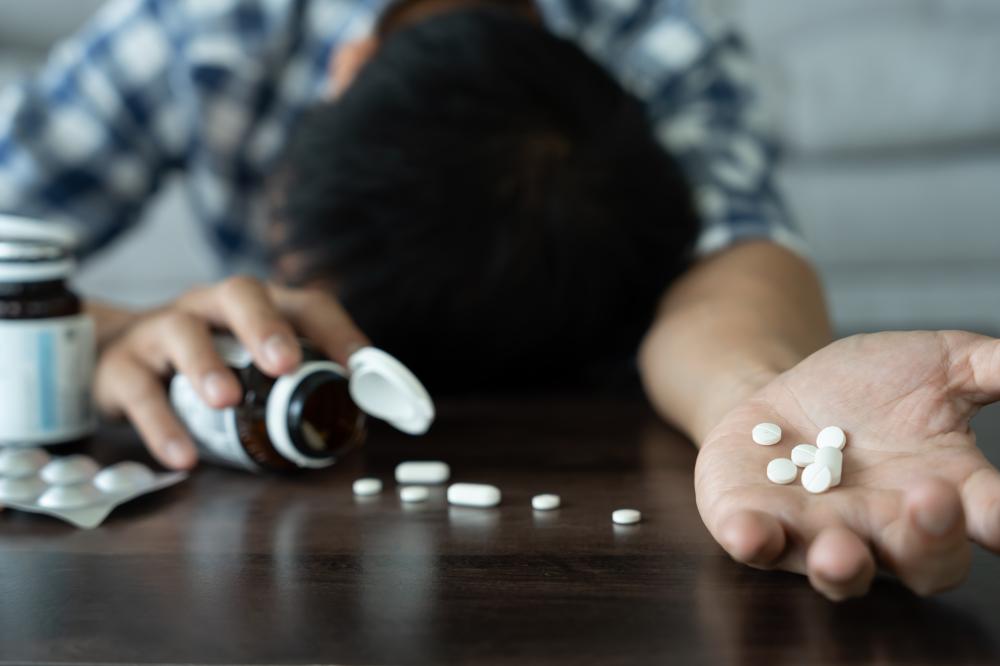
Embracing the Path to Recovery in Whittier
In Whittier, the battle against benzodiazepine addiction is a journey many undertake with hope and determination. As someone who has witnessed the transformation firsthand at Solace Hills, I can confidently say that recovery is not just possible–it is inevitable when approached with care and precision. Our center stands as a beacon for those ready to reclaim their lives from the gripping hold of benzodiazepine dependency. The essence of effective benzodiazepines addiction treatment in Whittier is a personalized care plan that celebrates individual strengths while acknowledging vulnerabilities.
Behind every person who walks through our doors is a story, often fraught with challenges but also teeming with resilience. It’s our job to nurture that resilience. I recall a client who, after years of spiraling, found solace in our tailored therapy programs. Through one-on-one counseling, they rediscovered a sense of worth and purpose. Group sessions offered them the camaraderie of shared stories and struggles, knitting a supportive network that extended beyond the confines of our walls.
The Detox Process: A Vital First Step
Detoxification is the initial gateway to recovery in the realm of benzodiazepines addiction treatment Whittier offers. At Solace Hills, we meticulously design medication tapers, ensuring a safe, gradual withdrawal that minimizes discomfort. This phase is crucial–it lays the groundwork for an individual’s capability to engage in further therapeutic interventions.
Detox is not merely about cleansing the body; it’s about regaining control. Our seasoned professionals guide clients with a nurturing touch, offering 24/7 support. I’ve witnessed the relief clients feel when they realize they’re not alone in this vulnerable phase. Instead of facing the darkness of withdrawal, they are enveloped in care that prioritizes both physical and emotional well-being.
We understand that each day in detox is a stepping stone. The body slowly adjusts, and the mind prepares for deeper healing. Safety is our commitment–a promise that ensures every individual can transition into the next stages of their recovery journey with confidence.
Therapeutic Engagement and Building Community
Therapy is at the heart of benzodiazepines addiction treatment Whittier residents can trust. At Solace Hills, therapy is more than sessions; it’s a transformative experience. How do we achieve this? Through a blend of science, empathy, and community. Personalized therapy engages clients on a profound level, addressing the myriad influences that have shaped their addiction.
Consider the impact of a group therapy session. Clients come together, not just to share their struggles, but to find strength in unity. I recall one particularly poignant session where a new participant found solace in hearing their journey mirrored by others. This shared experience ignited hope and fostered a powerful sense of belonging.
In addition to cognitive-behavioral techniques, we incorporate holistic practices like meditation and arts therapy. These elements address the whole person–mind, body, and soul. Engaging in these activities helps our clients discover new passions and coping mechanisms, paving the way for a fulfilling, drug-free life.
- Personalized therapy sessions
- Supportive group dynamics
- Holistic therapeutic approaches
- Community and alumni support
Why Is Recovery a Journey, Not a Destination?
Recovery is often described as a journey, a concept I’ve seen manifest in the lives of many at Solace Hills. Each individual’s path diverges, defined by unique challenges and triumphs. It’s vital that this journey is recognized for its fluidity rather than a fixed endpoint.
The idea of recovery as a journey embraces the ups and downs, acknowledging that setbacks do not equate to failure. I remember a client who stumbled after months of sobriety. The strength they found to return to their program was remarkable. They learned resilience, not through perfection, but by rising after every fall.
At Solace Hills, the journey is supported with ongoing care. We believe in the power of maintenance therapy and aftercare. These programs extend support beyond the initial phases of treatment, fostering long-term sobriety and growth.
How to Start Benzodiazepines Addiction Treatment Whittier Residents Can Trust
Embarking on the path to recovery is a brave decision that can often feel overwhelming. The question of “how” can be daunting. At Solace Hills, we ensure that initiating benzodiazepines addiction treatment Whittier clients need is straightforward and supportive.
Let’s break it down into simple steps:
- Reach Out: Contact our team for a confidential discussion about your needs and concerns.
- Assessment: Our professionals will conduct a comprehensive assessment to understand your unique situation.
- Personalized Plan: We develop a customized treatment plan that aligns with your goals and life circumstances.
- Begin Detox: Start the detoxification process in a safe, monitored environment.
- Engage in Therapy: Attend personalized and group therapy sessions to address underlying issues and build coping skills.
- Commit to Aftercare: Participate in aftercare programs to support ongoing recovery and prevent relapse.
Starting treatment is about seizing the moment and trusting the process. The support you’ll find here is unwavering, guiding you toward a brighter future.

What makes benzodiazepine addiction particularly challenging to treat?
Benzodiazepine addiction can be particularly challenging due to the way these drugs affect the brain. They enhance the effect of a neurotransmitter called GABA, which creates a calming effect. Over time, the brain becomes reliant on this external stimulus to maintain balance, making withdrawal difficult. At Solace Hills, we often see clients struggling with anxiety and insomnia as symptoms of their dependency. Our approach is to carefully manage these symptoms through personalized medication tapers and emotional support, ensuring clients feel safe and understood during detox.
Why is the detox process considered a vital first step in benzodiazepine addiction treatment?
Detox is critical because it helps clear the drug from the body, allowing individuals to begin healing. At Solace Hills, we recognize that detox is more than a physical cleansing–it’s about regaining control and stability. Our team provides 24/7 support to manage withdrawal symptoms safely. For many, the idea of detox can be frightening, but seeing the transformation in clients as they move through the process reinforces how essential it is to start recovery on a solid foundation. We ensure the experience is as comfortable as possible, setting the stage for successful therapy later on.
How does therapy aid in recovery from benzodiazepine addiction?
Therapy plays a crucial role in recovery by addressing the psychological aspects of addiction. At Solace Hills, we offer both personalized and group therapy to tackle the roots of dependency. Personalized sessions help individuals understand their triggers and develop coping strategies, while group therapy builds a supportive community. I recall a client who was initially reluctant to share in groups but eventually found strength in the stories of others. This community connection can be pivotal in maintaining motivation and preventing relapse, giving clients a network to lean on even after they leave the program.
What are some common misconceptions about benzodiazepine addiction treatment?
One common misconception is that detox alone is enough for recovery. In reality, detox is only the first step. Comprehensive treatment, including therapy and aftercare, is essential for long-term success. Another misconception is that addiction treatment is a one-size-fits-all process. At Solace Hills, we know that each person’s journey is unique, which is why we create individualized treatment plans. Addressing misconceptions helps set realistic expectations, encouraging clients to stay engaged throughout their recovery journey and beyond.
How important is community support during and after benzodiazepine addiction treatment?
Community support is vital both during treatment and after. It provides a sense of belonging and reduces feelings of isolation, which are common in addiction recovery. Solace Hills emphasizes building a strong community through group therapy and alumni networks. This support continues after formal treatment ends, offering an ongoing lifeline. I’ve seen clients who maintain connections with peers for years, providing mutual encouragement and accountability. This network can be a game-changer, especially during challenging times, helping to sustain recovery long-term.
Why is recovery from benzodiazepine addiction considered a journey rather than a destination?
Recovery is viewed as a journey because it involves continuous growth and adaptation. Success isn’t defined by an endpoint but by resilience in facing setbacks and challenges. At Solace Hills, we stress that a stumble doesn’t mean failure. Each experience offers an opportunity to learn and strengthen. One client described their recovery as a series of “small victories,” emphasizing the importance of celebrating progress rather than perfection. This mindset encourages ongoing engagement in aftercare and personal development, fostering lasting change.
How can someone start benzodiazepine addiction treatment in Whittier?
Starting treatment is a courageous step. At Solace Hills, we simplify the process to ease any apprehension. Prospective clients begin by reaching out for a confidential conversation with our team. We then conduct a thorough assessment to craft a personalized treatment plan. The journey starts with a safe and monitored detox, followed by personalized therapy sessions. Understanding each person’s fears and hopes is integral to our approach, ensuring that from the moment they contact us, they’re supported and guided towards a brighter future.
Resources
- Substance Abuse and Mental Health Services Administration – The Substance Abuse and Mental Health Services Administration (SAMHSA) is a government organization dedicated to reducing the impact of substance abuse and mental illness on America’s communities.
- National Institute on Drug Abuse – The National Institute on Drug Abuse (NIDA) is a research organization focused on addressing the health effects of drug abuse and addiction.
- American Psychiatric Association – The American Psychiatric Association is a professional organization representing psychiatrists in the United States, working to ensure humane care and effective treatment for individuals with mental illness.
